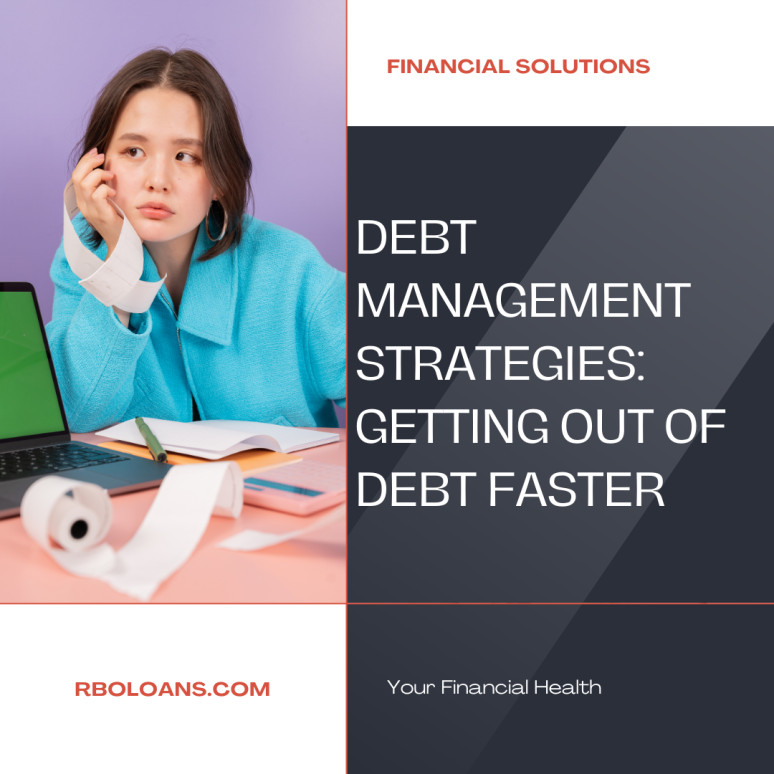
Debt Management Strategies: Getting Out of Debt Faster

In an era where credit is more accessible than ever, managing debt has become a critical aspect of financial health for many individuals across the UK. The allure of instant gratification, coupled with the necessity of loans for significant life purchases, has led to a society grappling with debt at various levels. This situation has profound impacts not only on personal financial stability but also on mental and emotional well-being.
The objective of this article is to shed light on actionable strategies that can help individuals navigate their way out of debt. By embracing practical debt management techniques, it's possible to alleviate financial strain and pave the way towards a debt-free existence.
Understanding Debt
Debt, in its most basic form, is money borrowed by one party from another. It's the engine of the economy but, when mismanaged, can lead to financial ruin. In the UK, common types of debt include credit card balances, personal loans, and mortgages. Each of these comes with its own set of rules, interest rates, and repayment expectations.
Interest Rates: The Hidden Cost of Borrowing
Interest rates are critical in understanding the true cost of your debt. They represent the cost you pay for borrowing money, calculated as a percentage of the principal amount. If you don't pay attention, debts from things like credit cards can get out of hand fast.
Good Debt vs. Bad Debt
Not all debt is detrimental. 'Good' debt is an investment that will grow in value or generate long-term income, like a mortgage on a home that appreciates over time. 'Bad' debt, conversely, is borrowing to purchase depreciating assets or for non-essential consumption that offers no return, such as high-interest credit card debt.
Assessing Your Debt Situation
The first step in managing your debt is understanding how much you owe. Begin by listing all your debts, including creditor names, balances, interest rates, and monthly payments. This overview will be the foundation for your personalized debt management plan.
Tracking and Organizing Your Debts
Various tools and apps can help track and organize your debts. Essential to this process is knowing the interest rates and due dates to prioritize repayments effectively.
Creating a Realistic Budget
A budget is your financial blueprint; it should include your income, expenses, and debt repayments. Ensuring it reflects your current financial situation is vital for it to be a useful tool in your debt management strategy.

Strategies for Reducing Debt
Successfully managing and reducing your debt requires a strategic approach. Here are several methods, each with its own advantages, to consider:
- Snowball Method
This way, you pay off the little debts first, then tackle the bigger ones, no matter the interest. You make minimum payments on all your debts except for the smallest, which you pay as much as you can towards. The satisfaction of paying off small debts quickly can provide motivation and momentum to tackle larger debts.
- Avalanche Method
Contrary to the snowball method, the avalanche method focuses on paying off debts with the highest interest rates first while making minimum payments on the others. This method can save you money in the long run on interest payments but requires discipline and patience, as it might take longer to pay off your first debt.
- Consolidating Debts
Debt consolidation involves combining multiple debts into a single debt, ideally at a lower interest rate. This can simplify your payments and potentially reduce your interest charges, making it easier to pay down your debt faster. Options for consolidation include personal loans, balance transfer credit cards, and home equity loans.
- Negotiating with Creditors
Sometimes, negotiating directly with your creditors can lead to reduced interest rates or adjusted repayment terms. Creditors are often willing to work with consumers to avoid default. It's worth contacting them to discuss your situation and any hardship you're experiencing.
- Utilizing Balance Transfers
A balance transfer credit card offers a low introductory interest rate, allowing you to move high-interest credit card debt to the card. This strategy can give you a window to pay down your debt faster by saving on interest charges. However, it's crucial to be mindful of balance transfer fees and the promotional period's end date.
Lifestyle Changes to Support Debt Repayment
Reducing debt isn't just about managing your money better; it often requires broader lifestyle changes.
Adjusting Your Budget
Examine your spending to identify non-essential expenses that can be reduced or eliminated. This may mean dining out less, cancelling unused subscriptions, or finding cheaper alternatives for services.
Increasing Income
Think about making more money by working extra, doing freelance jobs, or selling stuff you don't use. Even small amounts can add up and make a significant difference in your debt repayment efforts.
The Role of Savings
While paying off debt, it's also important to build a small emergency fund to avoid falling back into debt due to unforeseen expenses. Start with something easy and slowly do more.
Professional Help and Resources
If you find managing your debt overwhelming, seeking professional advice can be a wise decision. Debt counselors and debt management plans can offer structured repayment plans and negotiate with creditors on your behalf. Additionally, numerous government and non-profit organizations in the UK provide free or low-cost assistance to those struggling with debt.
Conclusion
Dealing with debt isn't just about money; it's also a chance to grow and get stronger. Each step taken towards reducing debt, from employing strategies like the snowball method to seeking professional advice, is a step towards financial autonomy and peace. Celebrate every milestone, no matter how small, as a victory in this transformative process.
Remember, you're not alone. Seeking support is a strength, offering both guidance and a reminder that overcoming financial hurdles is a shared human experience. The journey to becoming debt-free is indeed challenging, but it's also filled with lessons in resilience, discipline, and the power of perseverance.
As you navigate this path, keep sight of the ultimate goal: a life where financial decisions are made with confidence and freedom, not under the shadow of debt. This article is a starting point, a guide towards unlocking your financial potential and embracing a future defined by financial independence.


-small.jpg)


-small.jpg)